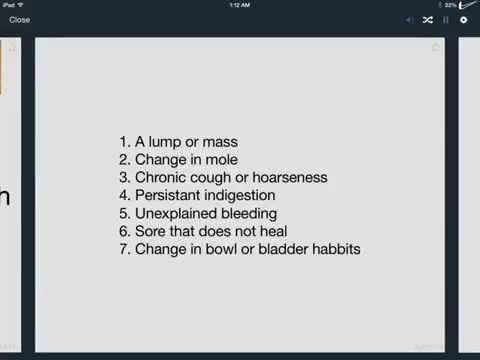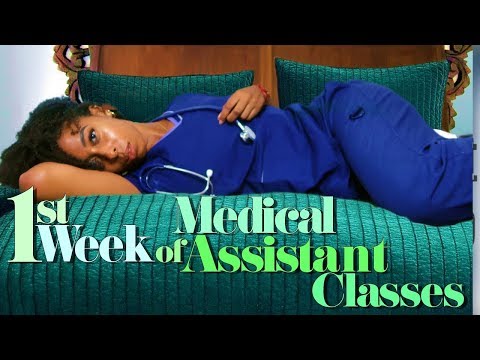What’s the Difference Between Medical Assistants and Medical Coders?
Contents
Medical assistants and medical coders are two important roles in the healthcare industry. Both positions require a high level of attention to detail and accuracy, but they have different responsibilities. Medical assistants generally work directly with patients, while medical coders work with patient records.
Checkout this video:
Job Duties
Medical assistants and medical coders are both important members of the healthcare team. Medical assistants generally work in outpatient settings, such as doctor’s offices, clinics and hospitals. They perform administrative and clinical tasks, such as taking medical histories and record vital signs. They also may give patients injections or take blood samples. Medical coders work in a variety of settings, including outpatient facilities, insurance companies and coding firms. They review patient medical records and translate the information into code that is used to submit insurance claims.
Education and Training
Medical Assistants (MAs) and Medical Coders (MCs) are both important members of the healthcare team. They both need to have a basic understanding of medical terminology, anatomy, and physiology. MAs usually have formal training from an accredited program, while MCs may have on-the-job training or may be certified by an organization such as the American Health Information Management Association (AHIMA).
Salary
When it comes to the world of medicine, there are plenty of positions that require different skill sets and offer different outlooks. Two specific jobs that might get lumped together are medical assistants and medical coders, but these two positions are actually quite different. Keep reading to learn more about the key differences between these two roles, including salary expectations!
Medical Assistants
The duties of a medical assistant can vary depending on their workplace, but they typically include taking patient medical histories and recording vital signs, scheduling appointments, handling correspondence, billing and coding information for insurance purposes, preparing patients for examination, and assisting the physician during the exam.
Medical Coders
On the other hand, medical coders are responsible for translating diagnoses and procedures into numerical codes used by insurance companies. In order to do this job, coders must be extremely detail-oriented as well as up-to-date on the latest coding changes. They also need excellent communication skills in order to communicate with physicians (their main customers) about coding questions or changes.
Job Outlook
The job outlook for medical assistants and medical coders is quite good. According to the U.S. Bureau of Labor Statistics, the outlook for medical assistants is expected to grow by 29 percent from 2016 to 2026, which is much faster than the average for all occupations. The outlook for Medical coding is a bit more modest, but still strong, with an expected growth of 13 percent from 2016 to 2026.
Career Paths
When you’re looking into starting a career in the medical field, it’s important to choose a path that will lead to the job you want. Do you want to work directly with patients? Do you want to work behind the scenes? Do you want a job that will give you the opportunity to move up into management?
The two main Career paths in the medical field are medical assistants and medical coders. Medical assistants work directly with patients, while medical coders work behind the scenes. Both careers have their own set of advantages and disadvantages.
Medical Assistants: Advantages
-Can work in a variety of settings, including hospitals, clinics, and doctor’s offices
-Can specialize in a certain area, such as pediatrics or geriatrics
-Gain experience working with patients, which can be helpful if you eventually decide to pursue a career as a doctor or nurse
-Have the opportunity to move into management positions
Medical Assistants: Disadvantages
-May have to work long hours, including nights and weekends
-May be required to perform tasks that are not medically related, such as administrative duties or cleaning exam rooms
-Pay is often lower than other medical professions
Medical Coders: Advantages
-Get to work behind the scenes in a fast-paced environment
-Can learn from home with online training programs
-Don’t have to interact directly with patients
-have the potential to earn a higher salary than medical assistants
Medical Coders: Disadvantages
-The work can be repetitive and boring at times
-May have difficulty finding a job if you don’t have certification
Certification
There are three types of Medical Coding certification: CPC, CCS, and COC. CPC is the most common type of medical coding certification. To be eligible to sit for the CPC exam, you must have either an associate’s degree or a Medical coding certificate from a post-secondary institution. The CCS credential is granted by the American Health Information Management Association (AHIMA) and requires two years of experience in addition to passing an exam. The COC credential is also granted by AHIMA and requires five years of experience in addition to passing an exam.
Key Skills
Medical assistants and medical coders are both important members of the healthcare team, but they have different roles. Medical assistants are responsible for performing administrative and clinical tasks in doctors’ offices, clinics, and other healthcare facilities. Medical coders, on the other hand, are responsible for reviewing patient medical records and assigning codes to diagnoses and procedures.
Both medical assistants and medical coders need to have strong communication and organizational skills. They also need to be proficient in using computers and medical software. However, medical assistants also need to have strong people skills, as they will be interacting with patients on a daily basis. Medical coders need to have a strong understanding of medical terminology and anatomy.
Working Conditions
Medical assistants may work in a variety of settings, including hospitals, physicians’ offices, and clinics. They typically work regular office hours, although they may be required to work evenings or weekends on occasion. Medical coders usually work in an office setting during regular business hours; however, some coders may be able to work from home.
What Employers Look for in Candidates
Most employers seek job candidates with a combination of technical and people skills. As a medical assistant, you’ll need to be proficient in administrative tasks, such as scheduling appointments and handling insurance forms. You’ll also interact directly with patients, so it’s important that you have strong communication skills and a caring bedside manner.
Medical coders, on the other hand, don’t interact with patients. Instead, they work with medical records and assign code numbers to diagnoses and treatments. Coders usually work in offices, and most employers prefer candidates who have postsecondary education in medical coding or a related field.
Medical Assistant vs. medical coder Which is Right for You?
Whether you’re just starting your healthcare career or you’re looking to make a change, you may be wondering about the difference between medical assistants and medical coders. Both are important positions in the healthcare field, but they have different roles and responsibilities. Here’s a closer look at medical assistants and medical coders so you can decide which is right for you.
Medical assistants are frontline providers who work directly with patients. They may perform administrative duties such as scheduling appointments and handling insurance paperwork, but they also haveclinical duties such as taking patient histories and vital signs. Medical assistants must be able to multitask and have excellent communication skills.
Medical coders, on the other hand, work behind the scenes to coding diagnoses and procedures for insurance reimbursement. They must be detail-oriented and have a thorough understanding of medical terminology. Medical coding is a demanding job that requires constant education to keep up with the ever-changing coding guidelines.
So, which is right for you? If you want a position that entails both administrative and clinical duties, then medical assisting may be the best option. If you’re more interested in working with numbers and detail-oriented work, then medical coding could be the right choice for you.







